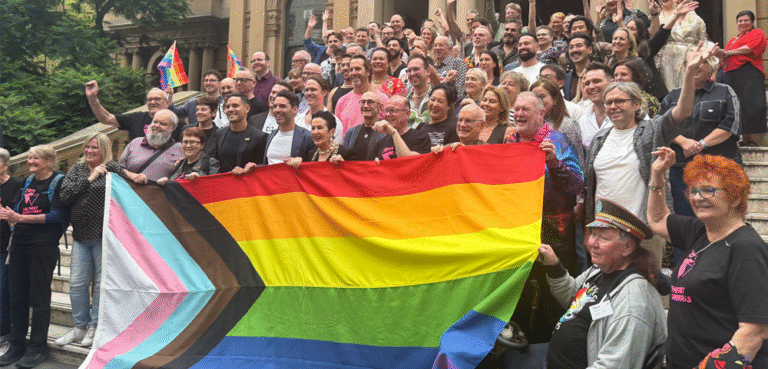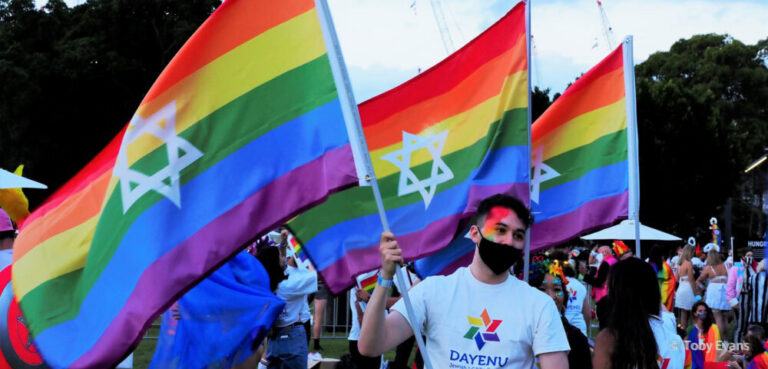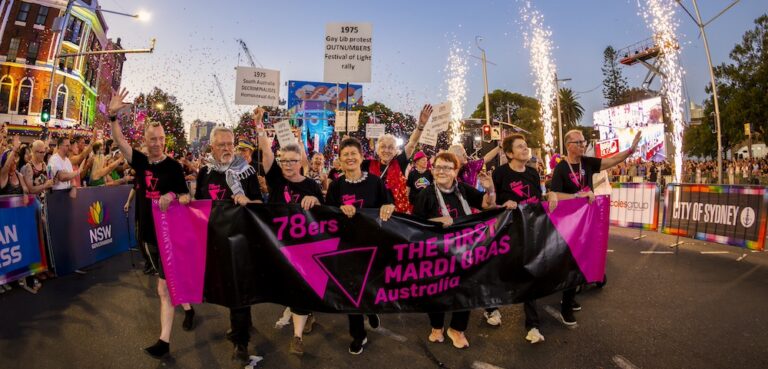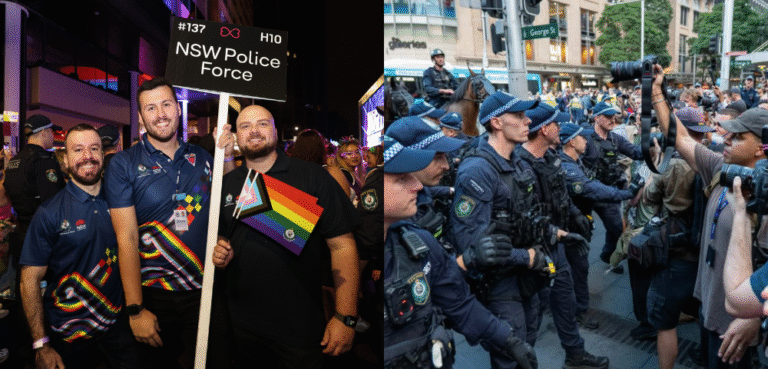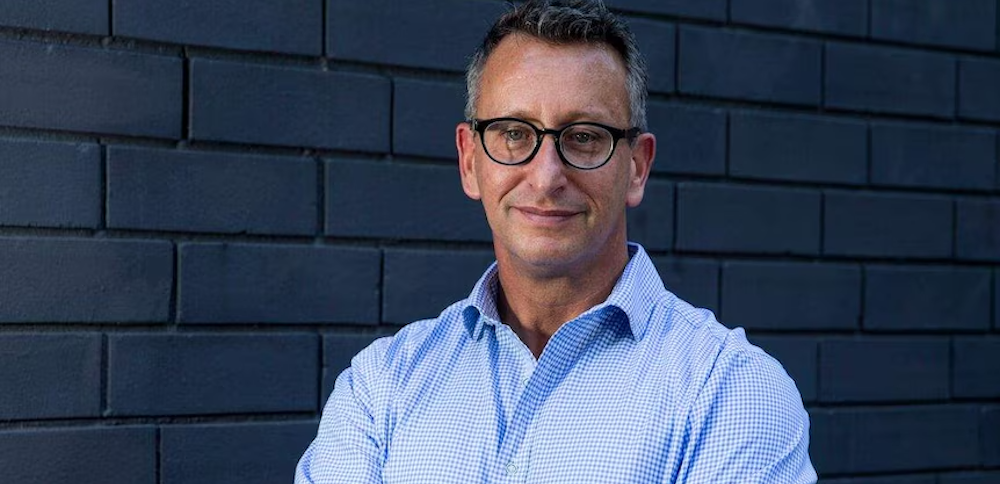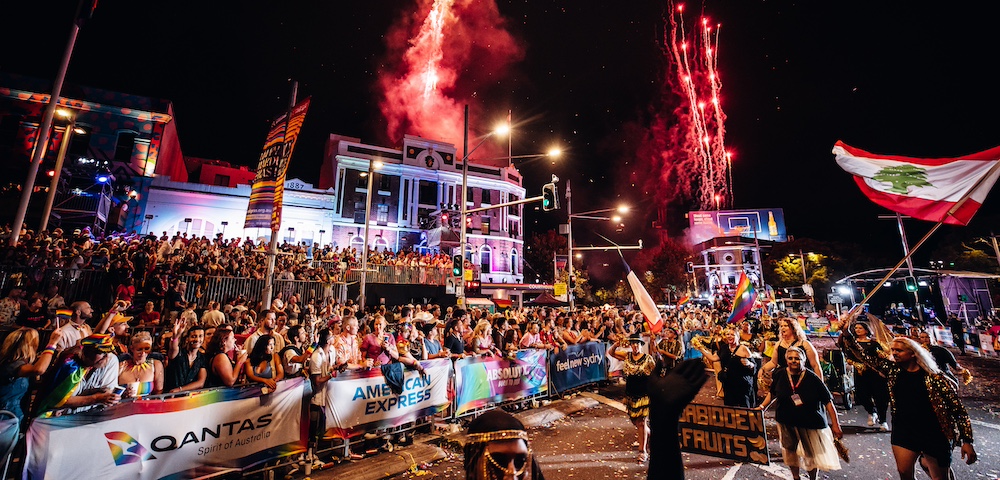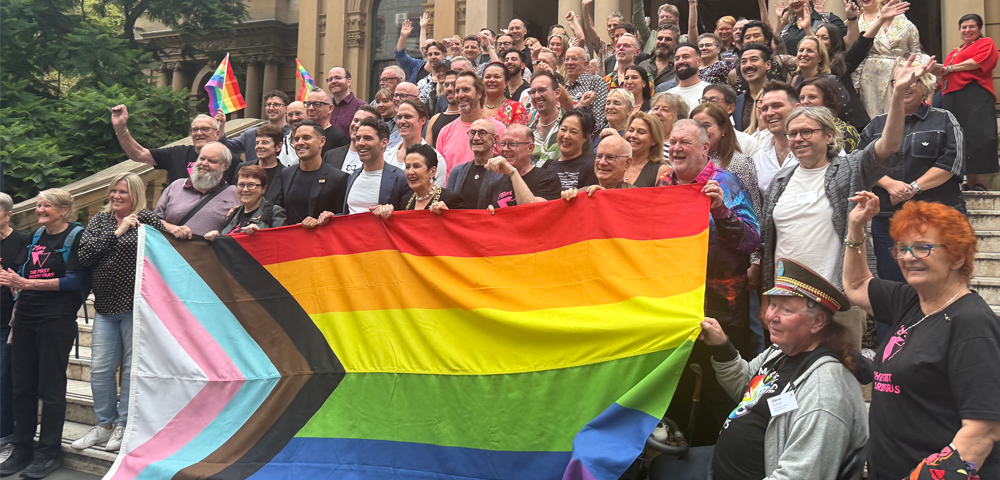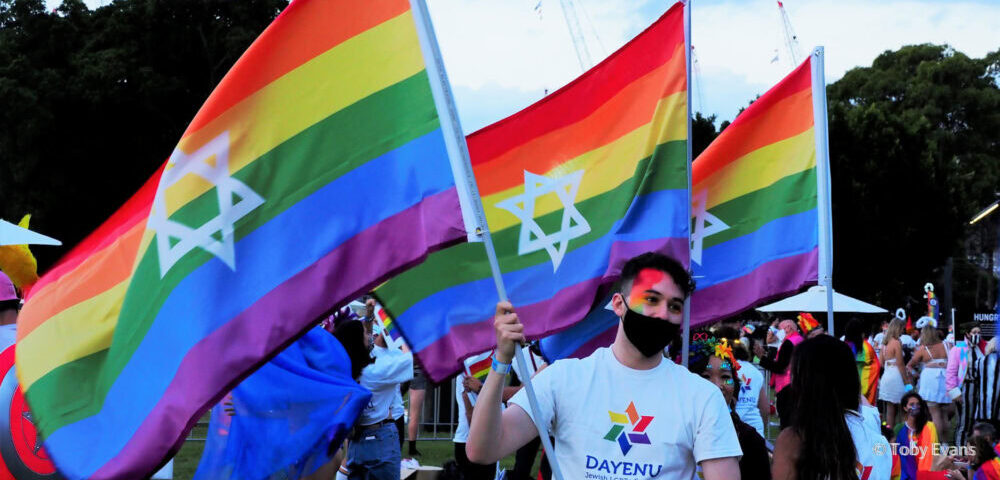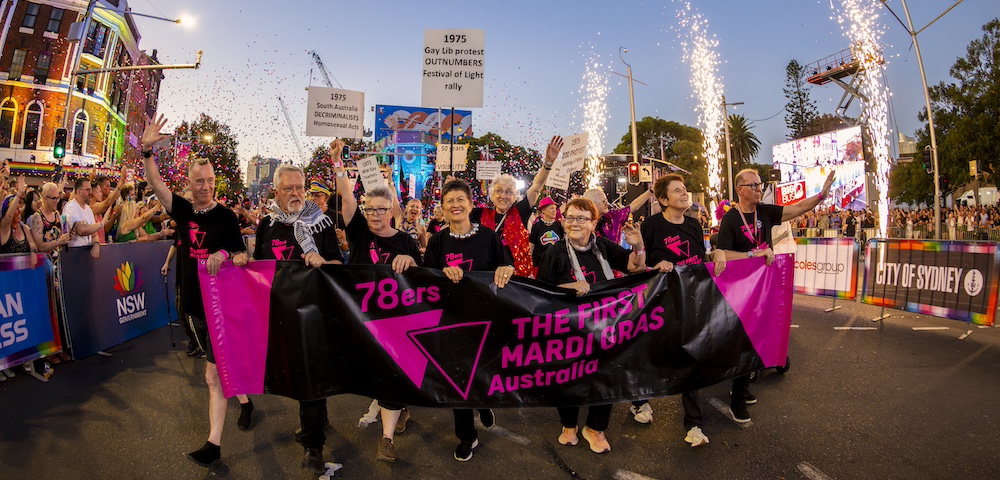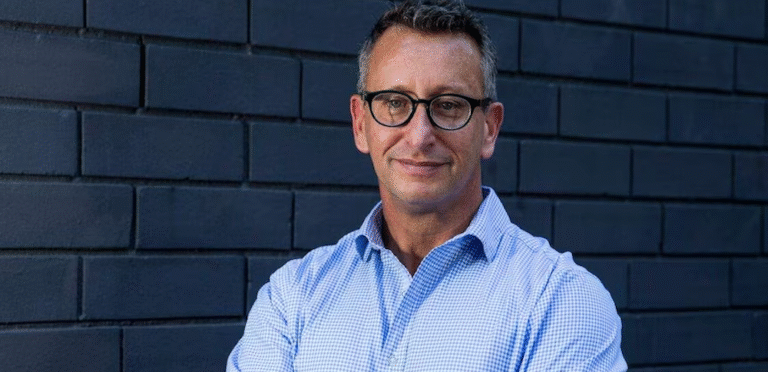
Gay Games: More revealed on loss
The report to creditors by Sydney 2002 Gay Games administrator Peter Marsden reveals much that has previously been unknown about the operations of the Sydney 2002 Gay Games board and management.
Most tellingly, the creditors report includes copies of five budgets prepared between February and May 2002 -“ all but the last of which projected significant financial losses for the event.
When Sydney 2002 Gay Games went belly-up in December last year, organisers offered a range of reasons for the financial failure.
These reasons included: sponsorship downfalls, participant shortfalls, party and opening ceremony ticket sales shortfalls, and negative media from mainstream and community press which -“ organisers claimed -“ perpetuated uncertainty about the Games going ahead.
But the February/May 2002 budgets -“ brought to light for the first time in the creditors report -“ suggest that the board and management always feared that the Sydney 2002 Gay Games were going to lose a lot of money.
According to the report, a budget dated 5 February earmarked a loss of nearly $1.6 million. This was revised down to a loss of almost $850,000 in a budget dated 28 February. A budget review process in April set the loss figure at $2.2 million, which was revised again to $2.4 million in a budget dated 8 May.
After four successive budgets predicted significant losses, a new budget dated 21 May (which was just over a week before the launch of ticket sales) suddenly earmarked a profit for the event of $23,589. This, Marsden noted, was achieved by reducing the budgeted expenses by a total of over $2.1 million.
While they had reduced expenses, they had also increased projected income for the opening ceremony by $100,000. Although party income decreased somewhat on the 21 May budget it had already crept up by about $400,000 on initial estimates. In the end the parties made $400,000 less than those original first estimates.
But speaking to the Star this week, Sydney 2002 co-chair Bev Lange maintained that a loss wasn’t necessarily on the cards for the organisation.
We were always of the view that we were heading towards a break-even, she said.
In his report, Marsden also quoted a revealing memo circulated between directors of the company, dated 15 May 2002, on budget matters.
-¦ I think it’s reasonable to budget for the relief from state govt, sponsorships etc (if we don’t bake these it, we really can’t take the budget to Westpac et al) [sic], the unknown author of the memo stated.
I am unable to advise at present the meaning of the above comments, Marsden wrote in the report. At last Friday’s creditors meeting he advised that it was inappropriate to comment on the memo. The directors were also asked at the meeting to clarify the comment, but declined, through a legal representative, to do so. Yesterday, Lange said she did not recall the memo, and she did not know who wrote it -“ or even who is alleged to have written it.
But one possible conclusion to be drawn from a reading of the report is that the 21 May budget was one devised in such a way to present the company in the best possible light and did not necessarily reflect the previous, more realistic expectations of the organisers.
In a similar way, press comments made by Sydney 2002 Gay Games board members and management in the lead-up to the Games last year appear decidedly optimistic about the financial picture of the organisation.
We have at this moment a balanced, break-even budget, then CEO Geoffrey Williams told the Star for the 11 April edition last year -“ at a time when the organisation’s budget, according to Marsden’s report, was actually positing an $850,000 loss.
On numerous occasions last year, Lange and fellow Sydney 2002 co-chair Peter Bailey told the Star one of two messages: either that the finances of the organisation were progressing according to budget; or that the budgets of the organisation were being carefully managed to avoid a blowout.
In July, Lange said there would be budget cuts if participation registration targets were not met. We’re more than happy to make those decisions. We won’t be delaying in doing it, she said.
A similar promise was made in October. I think we are acting as responsibly as we could be asked to act, Lange said then. I think we are being extremely cautious and conservative. We know that we can cut budgets if we need to, even at a late stage if we need to.
The Sydney 2002 administrator said in his report that he received additional financial information and budgets for the period August to November 2002 on 26 February 2003 -“ almost three full months after the commencement of the administration.
I have only had minimal time to review this information, Marsden wrote, however the directors have advised that budgeted costs were reduced in the months leading up to the games, and it appears that the budgeted cashflows and other financial information reflect a profitable trading position for the Company for that period. Such information, if correct, may provide directors with a defence to any action brought against the directors for insolvent trading.
Marsden’s report also reveals that three principal creditors to Sydney 2002, namely the Federation of Gay Games, Qantas and the Tax Office, have agreed to reduce their claim amounts.
The Federation agreed to accept $150,000 -“ down from their original claim of $420,000. While this may seem laudable, the value of the Gay Games brand -“ that thing which host cities pay the Federation for -“ has long been questioned. The financial failures of successive Gay Games in New York, Amsterdam and Sydney suggest either that the brand is overpriced, or that it is not being leveraged appropriately.
At a wrap-up press conference at the end of the Gay Games week, Federation co-presidents Kathleen Webster and Roberto Mantaci defended the Gay Games brand, saying it remained strong despite the financial troubles of host cities.
But Mantaci conceded, it means that we’ll have to look at this event with far more financial responsibility in the future, even more than we’ve done so far. We have to start from the very beginning, based on that principle of financial responsibility, in our relationship with Montr?.
GAY GAMES TIMELINE
28 February 2002
Budget posits a loss of $850,000 for Gay Games.
11 April
The 200 days to go mark. CEO Geoffrey Williams tells the Star the organisation has at this moment, a balanced, break-even budget.
18 April
Mardi Gras convenes a meeting of dance party organisers to discuss the declining dance party market.
26 April
Budget posits a loss of $2.2 million for Gay Games.
8 May
Budget posits a loss of $2.4 million for Gay Games.
21 May
Budget posits a profit of $23,589 for Gay Games.
29 May
Tickets go on sale for major events and parties. Sydney 2002 reveals for the first time that the closing ceremony, previously planned as an arena spectacular, will be an informal, free event.
12 June
Peter Bailey tells the Star that Sydney 2002 will stick to its dance party revenue strategy despite a disappointing turnout of 3,000 at ACON’s Hand in Hand party.
20 June
Mardi Gras announces a $538,000 loss for the financial year.
Bev Lange tells the Star: That the decline in Mardi Gras appears to be about management and lack of flexibility is particularly distressing -¦ For the organisation to go from a fairly healthy state not so long ago, to a very poor state, is disappointing in the extreme.
4 July
Peter Bailey admits Sydney 2002 faces a monumental task to reach participant registration targets.
11 July
Bev Lange promises budget cuts if participant registration levels do not reach targets.
13 July
At a public meeting, Bev Lange says Sydney 2002 are in negotiations regarding broadcast of the opening ceremony and a half-hour nightly TV package.
10% of all tickets sold.
31 July
CEO Geoffrey Williams resigns without explanation.
2 August
Participant registrations close with 12,783 people, 1,717 short of target.
Judith Fletcher appointed CEO. Sydney Gay and Lesbian Mardi Gras moves into voluntary administration.
August Community responds to financial crisis of Sydney Gay and Lesbian Mardi Gras.
11 September
Cultural festival program released.
3 October
Sydney 2002 approaches Westpac for a $1.5 million overdraft after experiencing a cash crunch. Budget figures earmark a $250,000 profit for the event, Lange and Bailey tell the Star.
SBS pulls out of a planned Games broadcast deal.
10 October
With ticket sales averaging $250,000 per week, Lange tells the Star that the event could be delivered without a budget shortfall even if ticket sales continue at the same rate.
17 October
A group of community elders agree to provide guarantees which will give Sydney 2002 early access to Ticketek funds.
25 October
Cultural festival opens.
2 November
Gay Games opens with a spectacular opening ceremony.
7 November
Bev Lange says Sydney 2002 were still aiming towards a break-even budget.
9 November
Gay Games closing ceremony. It is free and informal, as promised.
Farewell Party attracts 15,000 people: 10,000 short of sell-out.
29 November
Sydney 2002 releases paid staff from positions earlier than anticipated.
2 December
Sydney 2002 goes into administration with debts close to $3 million.

